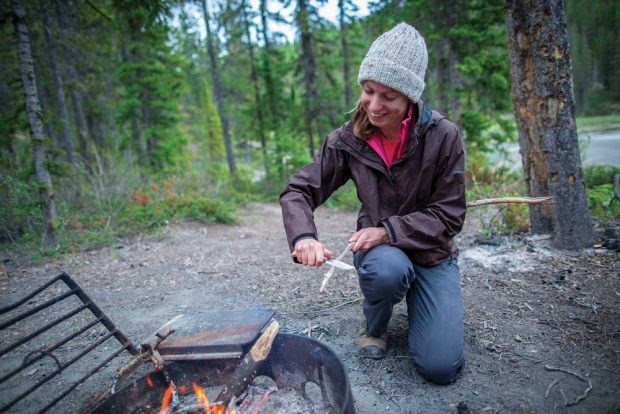
Peter Shokeir | [email protected]
Jasper set an all-time temperature record of 41.2 C on June 30 as a historic heatwave causes rising fire danger and water levels in the national park.
This new record replaces ones made the same week and the old record of 34.4 C in 1925.
“These extreme daytime highs are expected to persist well above normal right through July 1,” Environment and Climate Change Canada stated in a June 29 news release.
“Furthermore, the nighttime lows will not drop enough to bring relief to those in the most impacted areas.”
As a result of the heatwave, Parks Canada has elevated the fire danger in Jasper National Park to extreme.
Lighting or maintaining campfires in all day-use areas, picnic sites and backcountry campgrounds will be banned effective July 2.
Campfires are still permitted in frontcountry campgrounds, so long as they are in a designated fire pit or box provided by Parks Canada and are attended by an adult at all times.
Water levels in lakes and rivers, meanwhile, are especially high right now, and some areas may be closed due to flooding.
There is also traffic and parking congestion around Lake Edith, Lake Annette, Jasper Lake and Pyramid Lake.
Users are asked to park their vehicles in designated spots only, since cars on grass and brush are a wildfire risk, or they can bike to these locations.
The heatwave is affecting most of Western Canada and has shattered longstanding temperature records, especially in British Columbia.
On June 28, Lytton, B.C., reached an all-time Canadian heat record of 47.9 C.
“The extreme heatwave is caused by a significant atmospheric blocking pattern where a massive dome of hot air, reaching high into the atmosphere, remains stagnant over western North America,” Environment and Climate Change Canada added.
Western Canadians are urged to heed public health warnings and stay hydrated, avoid spending long periods of time outdoors, seek shelter and check on neighbours and loved ones who may be susceptible to heat stroke and heat exhaustion.
Fire information and updates for Jasper National park can be found at
Editor's note: The story has been updated to reflect the actual highest recorded temperature.



